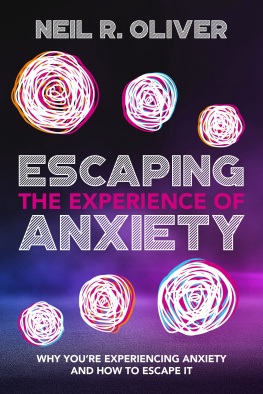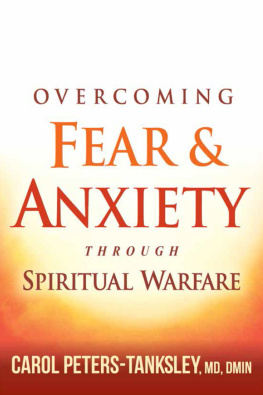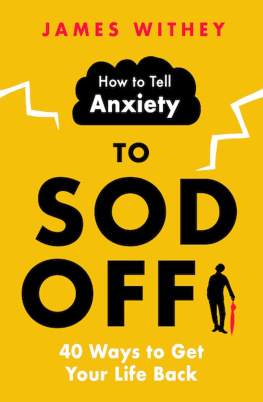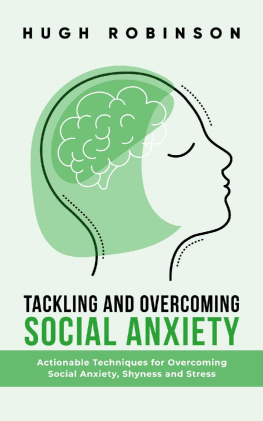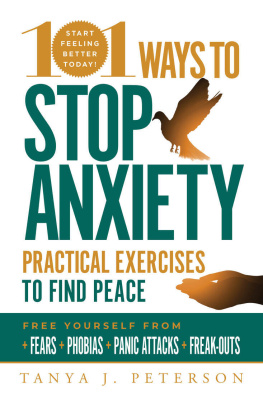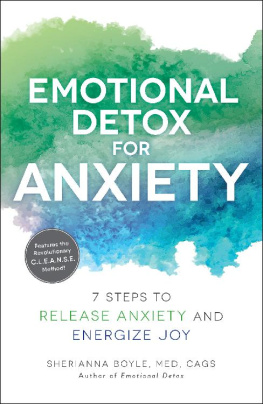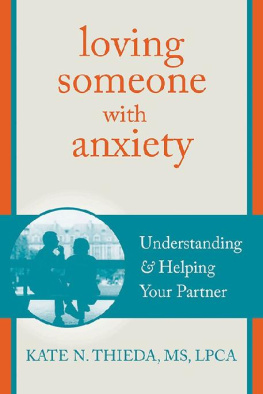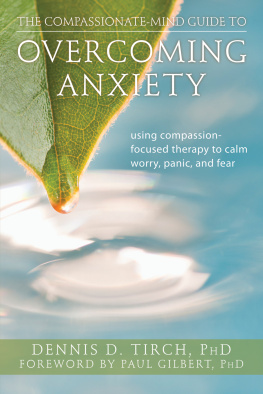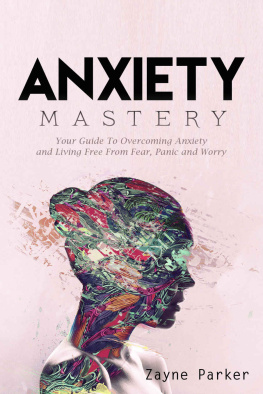Continue to increase your intellect. Observe as it is. Always take responsibility for controlling what has always been within your control.
Introduction
Dont just read this book. Study it. Read it and re-read it. Come back to it again and again over time. It was not intended to entertain you. It has been designed to be a strategic, purposeful tool you can use to equip yourself with the intellectual understanding you need to escape your experience of anxiety. I do not accept that your psychological torment should be the catalyst that keeps you entrapped in mental and emotional trauma. To suffer through the experience of anxiety is truly torturous. It is an unrivalled traumatic experience. You may have been deceived into believing escaping anxiety is impossible. Or maybe that theres no one out there who truly understands your experience. Possibly even believing that theres no one out there who can actually help you escape. Believing any of these ideas to be true is evidence that you have been deceived by lies.
The truth is you can escape your experience of anxiety. It is possible. And you will learn how. It can be extremely hard to make sense of our experiences both internally and externally as we are experiencing them. Equipping your intellect is your first step in breaking free. As you read on, do so patiently; make sure you digest the content on each page before you proceed. Dont rush through this book just to get to its end. The correct approach is to carefully study what is written, absorb it, and take time to truly reflect upon each chapter before proceeding to the next. As you progress, you will be challenged continuously. What you currently believe has not been serving you. As you read on, this book will break down the falsity of your beliefs by default. You will be provided with what you need, so you can take control of what is happening within you.
I suggest it might be practical to keep a highlighter and pen near. Make as many notes as necessary; highlight everything which stands out to you. This will help you reflect upon what you have learned, while also being a useful reference for you in the future. As you read on, continue to the end despite any fear you may be experiencing. Ignore any doubts and dont indulge in uncertainties. Persevere until the end. And follow through with the exercise in Chapter Ten as instructed. You must decide to go where you have never been. Claim yourself back. Do so boldly. Turn your back on the torment and trauma of anxiety. Take responsibility for doing what must be done. I believe in you.
Chapter 1
What is Anxiety?
The experience of anxiety is one of the most psychologically tormenting and emotionally traumatising experiences a person will ever have to endure in their internal life. Its presence can be both known to the person experiencing it or unknown, remaining covertly hidden from a persons conscious awareness. Many people experience the psychological, emotional and physical consequences of anxiety, suffering through and enduring the torment and trauma it provokes before ever becoming consciously aware of what is causing their experience. So, what is anxiety? How do we define it so we can make sense of it? First, we must accept anxiety to be an experience. Its not a random happening; its an experience of our own manifestation. We create anxiety; it doesnt just happen to us. I accept that to those intensely suffering through the experience of anxiety right now, there might be some reluctance to digest the truth.
Anxiety is manufactured via psychological processes which then manifest emotional experiences that influence belief systems at the deepest subconscious level. We will address the cause of anxiety in upcoming chapters. However, for now, you must understand that your experience of anxiety is the direct result of what youre thinking, how youre thinking, and how that thinking is then influencing your emotional experience. Coming full circle from this influences your belief system which then influences your conscious thought patterns once again. This is why it can seem impossible to escape the cycle of anxiety when youre experiencing it. When youre in it, your thoughts are creating your emotions, your emotions are then provoking more thought; on and on this continues until a person reaches their emotional threshold and is unable to cope.
First, we must accept anxiety to be an experience. Its not a random happening; its an experience of our own manifestation. We create anxiety; it doesnt just happen to us.
While enduring the experience of anxiety, a person will typically overthink everything at a very rapid rate. This makes everything in their psychological experience extremely complex and almost impossible to make sense of from their own strength alone. It is this psychological complexity which covertly tricks people into believing that escaping anxiety is not possible. To break free, you will be required to simplify what you think you know. You will need to accept simplicity free from the temptation of overthinking the simplicity of what you are learning. For some, they will only ever believe something has value if it comes with a high degree of complexity. The reason some people reject simplicity at first is due to simplicity challenging a persons psychological need for significance. To accept simplicity places a person at risk of feeling inadequate, because if they start to believe it really is so simple, they feel they should have always known it. For some, it is too difficult and confrontational to overcome the thought of being inadequate. So, at first, they protect themselves by rejecting simplicity.
There are times when to move forward we must simplify things in order to make them easier to process, easier to understand, and easier to apply. To break free from the experience of anxiety, we must simplify our understanding of what is happening in our internal experience, while also simplifying the process of regaining psychological control and emotional freedom. Experiencing anxiety does not necessarily mean you are mentally ill, damaged goods, weird, broken beyond repair or anything else you may have labelled yourself or been labelled by others. In identifying anxiety as an experience, we provide ourselves the opportunity to disassociate anxiety as being part of who we are. In other words, anxiety as an experience is nothing more than your experience, it has nothing to do with who you are or what youre capable of as a person, because its just an experience youre having. If you accept anxiety to be an experience, youre protecting yourself from identifying that you are the experience. This is critical for you to understand. You are not anxiety. You experience anxiety. Anxiety is a manifestation of psychological and emotional processes influencing your belief system. Anxiety is not who you are. So do not own any part of it as you; do not identify yourself as anxiety in any way.
Consider anxiety to be a form of internal feedback. Its presence is an indication to you that you have temporarily lost both psychological control and emotional control of your internal experience. When you lose control of your psychological experience, you will then be out of control of your emotional experience. Neurologically, it has been proven that thoughts create emotions. Thoughts, in and of themselves, are the catalyst events which manifest emotions experienced in the physical body. Negative, self-destructive, fear-based thoughts will produce the equivalent in undesired emotions. If a person maintains an out-of-control psychological state of being for long enough, continuing to entertain lies, believing negative thoughts to be true, buying into the fear believing it to be reality, this will provoke a person into a critically high level of negative emotional intensity. They will find it hard to escape their experience of anxiety because the intensity of their experience is the very requirement for the mind to believe the internal experience to be a real experience. In turn, this influences the brain to store the content of the experience as belief. Once belief is stored as memory, these beliefs then have the power to influence a persons default conscious thought patterns and behaviour.
Next page
